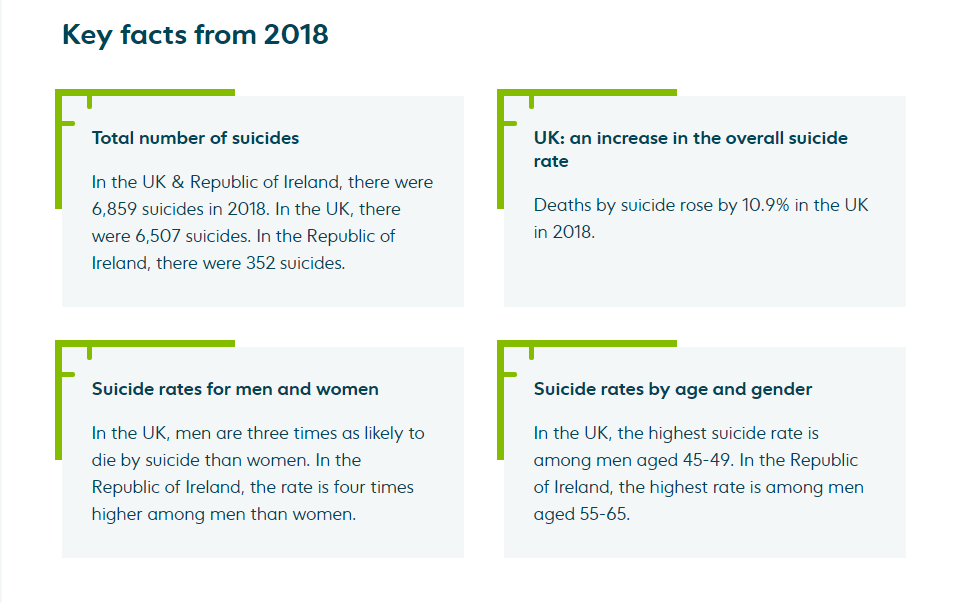
Have you had that niggling feeling recently? Someone in your family, a close friend or perhaps a work colleague, just doesn’t seem to be firing on all cylinders, not like they usually are?
Something’s wrong, you can’t put your finger on it but something is definitely wrong – they’re quieter than usual, they’re not making the same level of eye contact, they seem a little distant.
“Maybe they’re just having a bad day Steve? They’ll probably come round and be ok again soon enough” “Yeah, you’re probably right.”

“What if they’re not ok though? Have you asked them? Have you specifically asked them if they’re ok, you know, really ok?”
“What, I should ask them that?! That feels a bit awkward, I don’t want to pry. I’m sure if they’re really struggling they’re going to tell me right?”

When my son Jordan took his own life in December 2019, it was not only the most devastating news I can ever imagine receiving but it was also a total shock. It was a shock, not only to me but also to his Mother, a senior mental health nurse and his girlfriend, an about-to-be qualified clinical psychologist.
Jordan was typical of many men, living with a mental illness, such as depression. “I’m a man, we don’t share this kind of stuff, it’s not macho” “I should be able to deal with this kind of stuff, after all, I have a responsible job (or run my own business), I’m used to managing difficult situations, it’s what I do”. “I don’t want to be a burden”
Since Jordan’s death, we’ve analysed and re-analysed our understanding of his behaviour; why he didn’t always seem to be enthusiastic to invite us over to his place, why was it always his Mum, his sister or me, who had to suggest (strongly at times) that he came over to see us? Yet, this was the same Jordan who was the life and soul of get-togethers with his pals, an outwardly, outgoing person, except with his family. What we now realise is, that he was protecting us from being burdened by his depression. We knew he was struggling but had no idea he was at such a point where he would not only consider taking his own life but would then actually go ahead and complete suicide.
A Time Machine Would Be Handy Right Now
As a kid, one of my favourite films was the Time Machine – the 1960 Metro Goldwyn Mayer version, starring Rod Taylor. Because if I had such a machine, I’d go back in time and on December 3rd 2019 at 8:08pm.
Instead of texting Jordan and saying; “don’t worry if you don’t want to chat now son, whenever is good for you”, I would have picked up the phone and knowing he’s been feeling pretty low lately, I’d ask him: ” So, tell me Jord, how are you really feeling….and tell me honestly, I want to know?” But I’d had a long day, I’d spoken at a conference, I’d driven a couple of hundred miles and texting was easy, probably for both of us. I’d been in touch, at least, and we could always “catch up another time” as Jordan texted back.
Except…there is never going to be another time. If I’d picked up that phone, maybe, just maybe, it would have been the difference today, between the images you see below? ?

The World Health Organisation published a report in January 2020 and highlighted the following key facts:
- Depression is a common mental disorder. Globally, more than 264 million people of all ages suffer from depression.
- Depression is a leading cause of disability worldwide and is a major contributor to the overall global burden of disease.
- More women are affected by depression than men.
- Depression can lead to suicide.
With a sixth of workers, in the UK, experiencing a mental health problem at any one time and stress, anxiety and depression thought to be responsible for almost half of working days lost in Britain due to health issues, this is costing industry up to £45 billion. These figures produced by Deloitte also make a positive case for investment in mental health by employers, which calculates an average return of £5 for every £1 spent, up from the £4 to £1 return identified in 2017.
The Deloitte study shows that the way we engage with each other has to change – yes, we need to be more considerate and kinder to each other, as a society but business leaders also have to take responsibility. With the average UK worker spending more than 3500 days at regular work during a lifetime and an additional 188 days of overtime and with many workers, in this technological age, taking work home with them (less easy to quantify), then business owners and company bosses surely have a duty of care to ask their employees; “How will I know if you’re not ok?” This would, of course, require a significant cultural change in business, to one where feedback is the order of the hour, not simply an employee appraisal once or twice a year. If the likes of Google is anything to go by, then this type of employee feedback approach is surely a great benchmark for success.
For Now Though...
Let’s start small, let’s be prepared to look out for those around us and not be afraid to ask the difficult question; “Are you ok?”
I can tell you that the consequences of not asking this question are not worth even contemplating.
Steve Phillip is the founder of Linked2Success Limited, an established LinkedIn and social selling training and motivational speaking consultancy since 2009. More recently, he is the founder of The Jordan Legacy, an organisation set up in his son’s memory, which has the following mission:
To reduce the frequency of completed suicides by; improving people’s mental well-being and the support available; reducing people’s sense of social isolation and by encouraging the development of a kinder society where people feel a sense of achievement for who they are not what they have.
For regular updates on developments at The Jordan Legacy, you can opt-in here and to donate and help support causes supported and managed by The Jordan Legacy, we have a Just Giving Page here and thank you for any support, which will be put to very good use.

